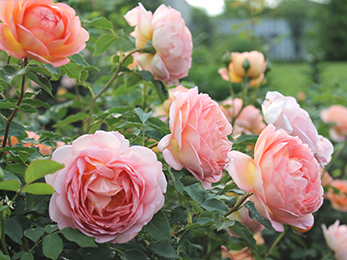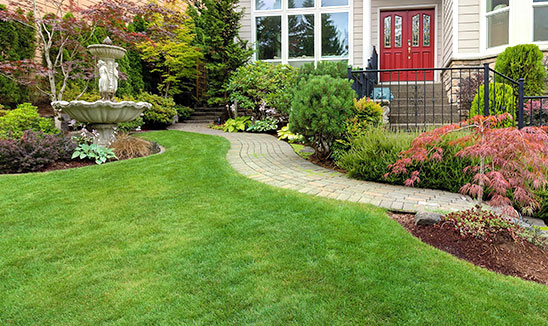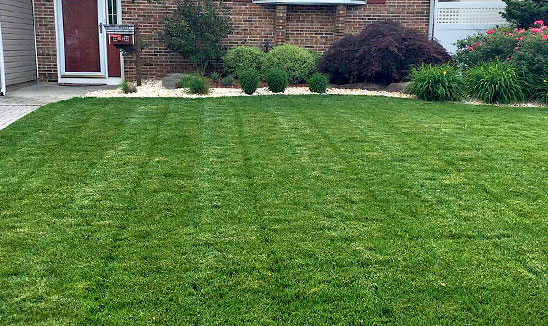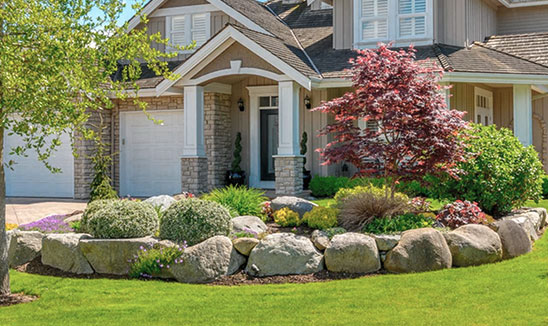Roses are well-known for being finicky especially during the hot summer months when they may bloom or not bloom at all. However, they can become your best friends and a continuous source of joy and relaxation if you know how to care for them. Our experts in lawn care in Kirkwood, MO, have agreed to share with our readers the basics of caring for roses in the summer.
Summer Rose Care Tips for the Absolute Beginner
For your roses to produce gorgeous blooms possibly season-long depending on the species, you’ll have to pay extra attention to all their needs. Light exposure, soil drainage and pH, fertilization, watering, and pruning are some of the basic step to take toward a healthy and beautiful rose bush.
Light Exposure
In the summer, roses love sunlight and they want plenty of it. Offer your rose bushes at least 6 hours of continuous direct sunlight every day. If that is impossible, at least place the bush in an area with plenty of ventilation (for extra moisture evaporation) and with a bit of sunlight, even in the evening. Expect from a rose growing in shade to produce fewer blooms than a rose in a sunny site and to be more prone to pests and disease.
Soil Drainage & pH
Roses need soils with excellent drainage for water and nutrients to easily reach their roots. Even though they may grow in dense clay soil, they may not thrive. Either replace the soil with a well-drained one or dig gypsum pellets into the soil and around the base of the rose bush to loosen and break up the clay. Also, keep an eye on the pH of the soil, as roses are very fussy about it. The pH should be around 6.3 and 6.8.
Watering
When in full bloom, roses need plenty of water, but their usual watering needs largely depend on the type of soil, shade, and climate. In temperate climates, if the weather is warm and dry, watering the plants once per week should be enough. In the summer when it is not extremely hot, water them 2 or 3 times per week. In extreme heat, water the roses daily and consider adding some mulch to keep water evaporation a bay.
Fertilization
Without proper feeding, roses may lack the energy for bloom production. The best fertilizer for roses is a formula specifically designed for them. You may use a multi-purpose fertilizer but supplement your plants’ diet with extra nutrients such as alfalfa pellets. Do not overdo it with the fertilizer as you may cause fertilizer burn.
Three times per year is sufficient for most bloomers: You can start feeding your roses after their first spring pruning, add some more after their first bloom, and finish with a last application in mid to late July. Fertilizing the plants too late into the summer might disturb their dormancy later on. Also, water the plants thoroughly after each fertilizer application.
Deadheading
Deadheading, aka regularly removing spent flowers, will encourage late-season bloom in most roses. Make sure that you deadhead the blooms before the plants have produced hips. Without deadheading, roses will focus more on producing seeds instead of new blooms.
Don’t Hesitate to Ask Our Experts in Lawn Care in Kirkwood MO for Help
At Lawn Masters, we have been offering lawn maintenance and landscape design and build services tailored to our clients’ very specific needs since 1983. We’re a family-owned and locally operated lawn care service that can take care of your roses and rest of the landscape for you to have enough time to enjoy the summer. We have some of the most competitive pricing options in our service area and some of the most highly trained technicians, but don’t take our word for it. Request a Free Estimate of the service of your choice or give us a call at 636-230-0700 today!












